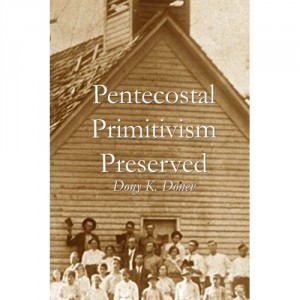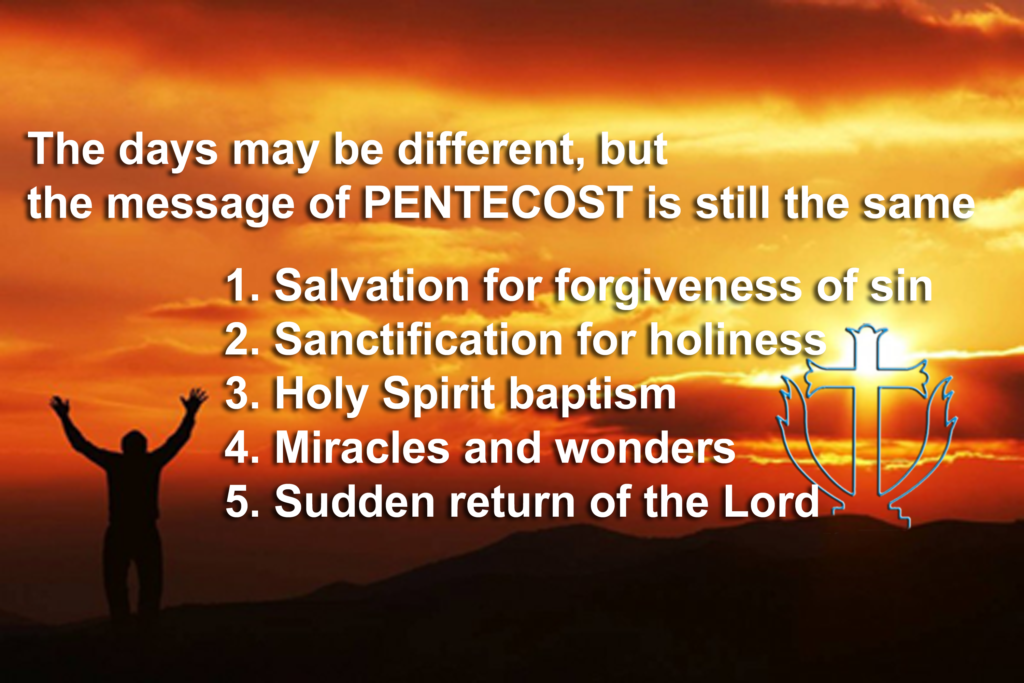The Cross: A Message of Salvation and Revolution
For every Christian, the crucifixion bears one ultimate meaning: salvation. And not just salvation through the cross, but through the death on the cross with multiple layers of significance. It is the fulfillment of Messianic prophecy, the undeniable proof of a sovereign God acting within the drama of human history, and an unprecedented political manifesto revealing the enduring power of faith.
The practice of crucifixion dates back to the 9th century B.C., introduced by the Assyrian king Shalmaneser as a brutal punishment for criminals. Offenders were bound, crucified alive, and raised high to be seen by the public—a horrifying spectacle designed not merely to punish but to sow fear in all who dared challenge the authority of the empire. The true power of this punishment lays not in the death it brought, but in the prolonged agony and exhaustion preceding it.
Before the rise of the Roman Empire, crucifixion already bore the weight of terror and shame. Under Rome, it became the empire’s most dreadful symbol—a declaration that its might could crush any man, any nation. In 71 B.C., following the failed rebellion led by Spartacus, 6,000 of his captured followers were crucified along the road from Capua to Rome.
Rome had turned crucifixion into a science of torture! Death so brutal that the victim became little more than a piece of bloody meat in the eyes of the soldiers. Flesh was torn by whips embedded with metal, bone, and glass. Blood drained from the body until the organs could not function any longer. The body suffocated slowly, painfully, as breathing ceased and the blood powered into the dry limestone dust. The torment was total!
The condemned were then nailed to rough-hewn wooden beams—hands and feet pierced—then lifted slowly into the air. Death came not instantly, but after three to four hours… or three to four days. The sight of a naked, disfigured body suspended on a cross, wracked with agony, could not go unnoticed by the watching crowd. The criminal had turned into a victim of cruelty, of imperial might and of public condemnation.
This is the scene that Tertullian, an early Christian apologist, identified as the peculiar cruelty of crucifixion. The Roman historian Cicero deemed it a “most cruel and horrifying” punishment, while Josephus described it as the “most pitiable of deaths.” Yet for imperial Rome, the crucifixion was a public proclamation: a terrifying sentence reserved for those who dared to disrupt the order and peace of the ultimate pagan state. All rebels against the Empire met such an end!
Jesus knew that this would be His fate! It was foretold in the prophecies. This was how the true Messiah was destined to die. The four Evangelists describe in vivid detail the trial and crucifixion: Judas received his silver and his judgment; conflicting witnesses marred the court; Pilate washed his hands before the crowd, claiming to find no fault. The soldiers’ beatings, the casting of lots for His garments, the crown of thorns, and the long, agonizing walk to Calvary under the burden of the rough heavy wooden cross—all marked the path of redemption.
His blood stained the narrow streets of Jerusalem! The crowd followed Him to the hill called Golgotha. Those near enough saw the splinters of the Roman-crafted cross soaked in blood. Those farther away heard the hammer strike iron through flesh, followed by screams that pierced the air. Then the crowd hushed as the Roman soldiers began to pull the ropes. The cross was raised upright, wedged into the rocky ground. And on it, standing tall between heaven and earth, hung the reason for our faith, the very source of our salvation. The forsaken Messiah, the wounded Healer, the King condemned by kings, the Lord slain by lords. His hands and feet were nailed, His brows crowned with thorns, His body swollen, bloody, and bare. His blood streamed down the tree, dripping onto the hardened faces of the guards below. For this is how God chose to die for the salvation of the world. But even from the cross, through parched lips and a final breath, the Eternal One continued to speak.
At that moment, in midday darkness, the veil of the temple was torn from top to bottom. It was not the end, but a beginning. The wounded, the outcast, the poor, and the powerless were now invited into His presence!
Five apostles—Andrew, Bartholomew, Peter, Philip, and Simon the Zealot also died by crucifixion, as Christ did. Thousands of early Christians were crucified along Rome’s stone paths. John Foxe, in his Book of Martyrs, writes that crosses, poison, and every imaginable cruelty were employed to eradicate Christians. Not for crimes committed, but for the singular “offense” of believing differently. For the early Church, the cross transformed from a symbol of terror into a banner of faithfulness, even unto death.
By the end of the first century, apologists like Minucius Felix were already linking the cross with Christian identity. In the early third century, Tertullian himself proclaimed it the sign of the Lord. History knows no greater reversal, no more profound political declaration: the symbol of Roman oppression became the symbol of the Christian faith.
The early Church’s message was clear: the pagan empire held no power over faith that rose above death, hell, every kingdom and every ruler. The cross carried a social message too, judging justly and restoring dignity. At Golgotha, the lame walked, the blind saw, the poor found their Father.
The cross bore an economic truth as well: an empire built on slavery cannot hold those made free in Christ. But above all, the message of the cross is spiritual. Earthly power cannot liberate the soul. Only Christ, crucified, can redeem those who give their lives to God!
It is likely that, in our own century, a global power may again seek to assert its might crushing dissenters, thinkers, believers alike through legislative, executive, and judicial force. And perhaps, for a time, it will succeed. But it will not endure! For the word of the cross is a power greater than any empire, earthly or otherwise. Easter is the triumph of faith—the holiday that transforms the enemy’s weapons into instruments of salvation.
Christ is Risen! May God keep us all!
Dony K. Donev, D.Min.

The message of PENTECOST is still the same…
February 10, 2023 by Cup&Cross
Filed under 365, Featured, News, Publication
Since the beginning of the 21st century, only 6-10% of new born believers in America receive the Baptism with the Holy Spirit, which by 2018 has resulted in:
- Over 60% within Global Pentecostalism do not speak in tongues
- A major doctrinal shift within Pentecostal Theology today claims speaking in tongues is not the only evidence of Holy Spirit Baptism
- Some theologians even claim there is no initial evidence in the Bible
- Others today go further to believe that no outward sign of the Holy Spirit baptism is necessary.
For this reason, WE are re-committing ourselves and ministry to revival and restoration of the Pentecostal Message through praying, fasting and preaching:
- Salvation of the sinner’s soul and entire sanctification through the Blood of Jesus
- Baptism with the Holy Spirit and fire with initial evidence of speaking in tongues
- Supernatural gifts and ministries of the Holy Spirit
- Healing, deliverance and signs following
- Pre-Millennial return of Christ and pre-Tribulation Rapture of His Church to glory
Please consider the URGENCY of this generation!
Let us reason together what can we do to prevent this rapid decline in Biblical spirituality.
Revival will not come without preaching!
Revival of Pentecost will not come without preaching the Message of Pentecost.
Speaking in Tongues in America Prior to the Azusa Street Revival of 1906
April, 1906 – The Azusa street revival swept the globe starting with California
January 1, 1901– The initial phenomenon of speaking in tongues occurred at Parham’s school in Topeka, Kansas
January 6, 1900 – Frank Sanford’s Shiloh school reported that “The gift of tongues has descended”
1896 – Over 100 people baptized in the Shaerer schoolhouse revival conducted by the Christian Union in the North Carolina mountains
1887 – People falling in trances and speaking in tongues were reported at Maria Etter’s revival meetings in Indiana
1874 – Speaking in tongues occurred during healing meetings reported in New York
1873 – William H. Doughty and the Gift People of Rhode Island spoke in tongues
1854 – V. P. Simmons and Robert Boyd reported tongue speaking during Moody’s meetings

FURTHER READING:
Church of God (Cleveland, TN)
- Alive, alive! (A personal testimony)
- Church of God Primitivism
- Bulgarian Church of God
- J.W. Buckalew
- Why revival came? by Dr. Charles Conn
Azusa Street Revival of 1906
- Lucy F. Farrow: The Forgotten Apostle of Azusa
- The FORGOTTEN ROOTS OF THE AZUSA STREET REVIVAL
- Azusa Street’s Apostolic Faith Renewed
- Azusa Street Sermons
- Pentecostal Primitivism Preserved
Prior to Azusa Street Revival of 1906
- First person to speak in tongues in the Assemblies of God was William Jethro Walthall of the Holiness Baptist Churches of Southwestern Arkansas
- The Work of the Spirit in Rhode Island (1874-75)
- Speaking in Tongues in America Prior to the Azusa Street Revival
- WAR ON THE SAINTS: Revival Dawn and the Baptism of the Spirit
- How Jezebel Killed One of the Greatest Revivals Ever
Prophetic Message of Over 30 Years Brings Peace in 2021
On November 9, 1989, the Berlin Wall, the physical representation of the Iron Curtain was brought down. The standing shoot-to-kill orders of the border guards fell. It meant the end of the Cold War, a war which was waged on political, economic, and propaganda fronts and it meant the end of the Communist Regime in Bulgaria.
Seven months prior to this historic occasion, a Danish journalist by the name of Johny Noer along with his family came to Bulgaria traveling in a Pilgrim Convoy to share one message. The message which was declared throughout Communist Bulgaria was not well received and many threats against his family were given to the point of arresting him, confiscating his passport, separating him from his nursing wife and children and escorting them out of the country via separate routs. The outlawed message was: “LET MY PEOPLE GO!” He literally shouted it from the roof tops of open air events in which there were thousands of desperate listeners searching for hope of liberation. This message shook the spiritual foundations of Bulgaria forever.
Exactly 25 years later, our ministry invited brother Noer and his wife to Bulgaria again to proclaim the same message: “LET MY PEOPLE GO!” By miracle, we were successful in getting them into the country even though they had been blacklisted and were not permitted to return. By miracle, we received permission to hold gatherings on election day and by miracle, the funds came just as needed to rent the largest auditorium in the city. The year was 2014 and during one of the many sermons he preached during this revival crusade, along with declaring to “LET MY PEOPLE GO”, a prophetic message was given which was not fully understood until this past year. The message, given in broken English translated into Bulgarian, was exact details of the Corona Virus Pandemic. Astonished by the Word of protection for God’s people, we shared this video clip on social media in 2020. But what astounded us the most was that the video was blocked for containing false information about Covid-19. Over 30 years later this message is still being outlawed by the powers of darkness.
In Exodus 5, when the Israelites brought the words from the Lord and asked to be let go and be able to worship, Pharaoh said, “Who is the LORD that I should obey his voice and let Israel go? I do not know the LORD, and moreover, I will not let Israel go.” But regardless that “Pharaoh” does not know the Lord and forbids worship to the point of arrest and tries to keep God’s people behind the Wall, there is hope in the next part of the story. There is God’s promise for deliverance, the plagues and having to make bricks without straw will be in the past. And no matter the modern-day attempt at censorship, manipulative propaganda or shoot-to-kill silencing orders, we will shout it from the Mountain Tops, “LET MY PEOPLE GO!” We will worship even if we have to go to the wilderness, wherever or whatever that may be. We will shake the spiritual foundations of this country once again.
In the beginning of 2020, the Lord spoke to us what the verse of the year would be for 2021. It is only now that we fully understand its significance. When Jesus appeared to the disciples after His resurrection in John ch. 20, they were hiding behind closed doors in fear. But Jesus came, stood among them and told them “Peace be with you!” This first command for peace and presence calmed fears restoring social order and justice. And in 20:21, Jesus told them again, “Peace be with you”. This second command was a strong imperative salutation to “GO”. Then He breathed on them to receive the Holy Spirit and sent them out as the Father had sent Him.
This year, we are not to live in fear behind closed doors. We shall receive the Resurrecting Power of the Holy Spirit and go out. It is this Power which shall be our covering which Johny Noer spoke of in 1989 and 2014. Today, we have hope of liberation from any Wall, Curtain, Regime or Order. Jesus is amongst us standing undefeated. In 2021, may peace be with you as you stand up to go out declaring “LET MY PEOPLE GO” and do not take no for an answer.
January 1, 2021 Cup & Cross Ministries International, John 20:21
https://www.youtube.com/watch?v=oO3f3vvZSeY
Movement with a Message
![51DUWeyraBL._SY344_PJlook-inside-v2,TopRight,1,0_SH20_BO1,204,203,200_[1]](https://cupandcross.com/wp-content/uploads/2014/04/51DUWeyraBL._SY344_PJlook-inside-v2TopRight10_SH20_BO1204203200_1.jpg) It is an indisputable fact that the Pentecostal movement has experienced tremendous growth in the twentieth century. Very similar to the ministry of John the Baptist, the message of Pentecost has drawn crowds to the small mountain churches where in contrast to the rather primitive theo-praxis the power of God has been evident.
It is an indisputable fact that the Pentecostal movement has experienced tremendous growth in the twentieth century. Very similar to the ministry of John the Baptist, the message of Pentecost has drawn crowds to the small mountain churches where in contrast to the rather primitive theo-praxis the power of God has been evident.
Similar to the ministry of John, the powerful results of Pentecostalism are produced by preaching that may seem unreasonable. For Pentecostals, however, it is words of life. It is obedience to the Great Commission of Christ to preach the gospel to all due to determination deriving from realized eschatology of the already-not-yet Kingdom of Heaven. The reality of the message then becomes a reality of the Pentecostal community in which the believer lives and witnesses even to the point of martyrdom. What seems to be an unreasonable message to the world becomes the identity of the Pentecostal community.
A loss of the message then means a loss of identity. In order to protect its identity Pentecostalism strives to deliver the message and experience to the generations to come, forming a genuine Pentecostal catechesis. This is much similar to the educational strategy of John the Baptist and his discipleship formation. The restoration and reclamation of the past heritage moves toward preservation of the experience and message. The context of technological and scientific progress, affects the development of the Pentecostal movement transforming its original primitive purpose, theology and practices. The only way to preserve the power of Pentecostalism then is through preservation of its primitivism.
MISSIONS TEST 1: Mission, Method & Message
Dony K. Donev, Cup & Cross Ministries International
The following World Missions Series were sparked by a partial sign with the words “Missions Check,” we saw in Atlanta on our way to a mission’s trip to Europe just a weeks after the great tornado of 2011. We’ve observed the events that followed for over a year now, thus launching these series with a purpose. After serving in various ministry positions around the globe as a part of the Church of God for over 20 years, we have built a solid platform as a response to current problems and issues on the mission filed. In the past seven years alone, our ministry team has survived several consecutive denominational splits, and coming on the other side still preaching Jesus Christ and Him risen, this is what we have to state…

A people is a group owning a vision. Vision is what we do today in order to have a better tomorrow. Mission is the things we do to accomplish the vision. And if mission without a vision is blind, mission without a message is blind without a tongue. It feels and it hears, but it can never fully perceive and speak to be heard.
A mission is distinct by the method via which it brings its message. These three are ultimately and intrinsically connected. If mission is what we do, method is how we do it, then message is what we want people to know after we have done it…
But the method of bringing the message quite often changes the message itself. Thus changing, adapting and altering the ministry method must be done with careful consideration of the long-term shift they create not merely in our mission, but on our own Pentecostal identity as well. While adjustments may be needed in missions as the world around us changes, the message must remain the same at all cost. For who is the source and the ultimate agent of change, except the author of the message – God in whom there is no shadow of change?
A good number of churches in the 21st century are choosing to abandon their mission programs as dysfunctional and obsolete in order to follow a more corporate-based model of becoming mission-sending agencies and/or partners with such. While this may be financially and structurally beneficial, such paradigm cannot work for any Pentecostal church with local or global representation without changing forever its corporate identity.
At the same time, there is no need to restart or reset missions, for Mission Dei is not a circular, seasonal or repetitive process in human history. It is solemnly based on the ultimate, one-time event of the crucifixion and resurrection of Jesus Christ, the Son of God. This salvific monument on the stage of eternity neither needs, nor will it ever repeat and recycle itself again into history. And it most certainly does not need our human participation to be reset into a new century. The only restarting that is ever needed is our own resubmission at the old rugged cross on Calvary.
Changing our missional structure to fit, the ever-changing world we live in, is a reaction, generally done post-factum if not too late. And any reaction is simply not leading, but following. Which bids the question, is the church leading in this world or is our mission being reduced to the needs of the current social system. For the Bible still calls us to be not conformed to this world, but transformed by the mind of Christ. To be not merely a culturally relevant church, but a Bible-based alternative culture in a sinful world.
The lesson of the contemporary and culturally relevant church should have been learned centuries ago by Byzantine Orthodoxy. For it is not the change of the world that affects the outcome of ministry, but the change of the church by transformation within. And it is there that the preservation of our cross-fixed, blood-washed, and power resurrected identity must remain constant and unchanging. Thus, we find simply irrelevant, any call for a culturally relevant church, which causes the change or yet even the loss of the message of eternal salvation.
Related articles:
Missions Test 2: Means, Motive & Opportunity (2012)
MISSIONS TEST 3: Missionary Testament (2012)
MissionSHIFT (Part 1): Paradoxes in Missions (2011)
MissionSHIFT (Part 2): Free Will Missions (2011)
MissionSHIFT (Part 3): WebMissions – The Good, The Bad and The Ugly (2011)
M3: Missions for the Third Millennium – A Public Position (2010)
8 Simple Rules for Doing Missions in the Spirit (2009)
Church of God Eastern Europe Missions: Leadership, Economics and Culture (2009)
Read also: Why I decided to publish Pentecostal Primitivism?










